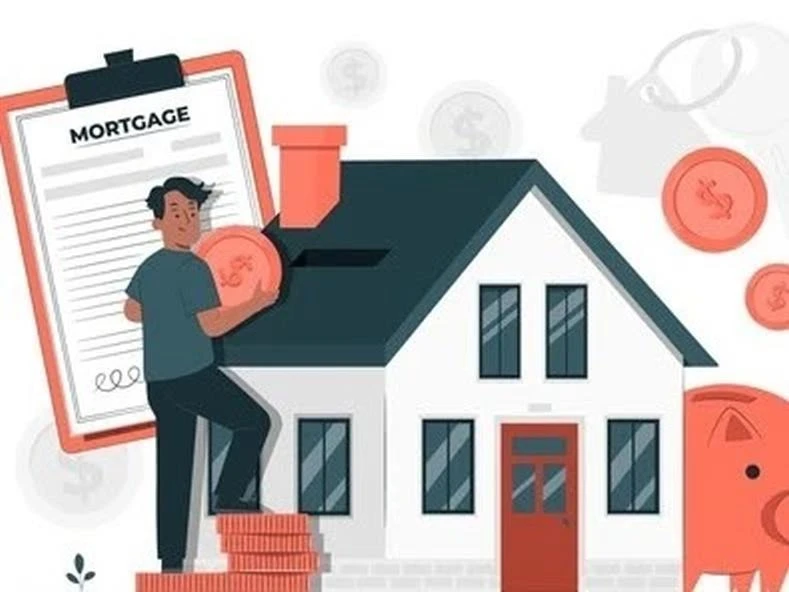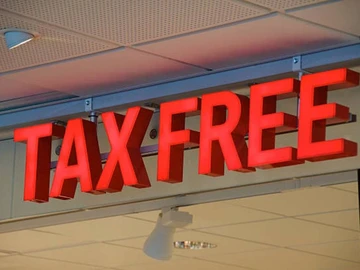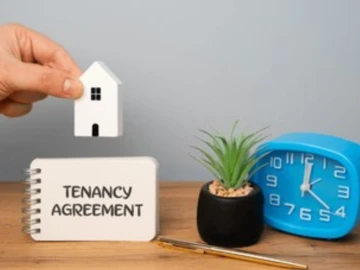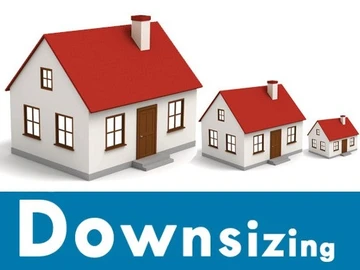The traditional path to homeownership involves living in the property you purchase with a mortgage. However, life circumstances can change, and you might find yourself needing to relocate for work, family reasons, or simply a desire for a fresh start. In such scenarios, renting out your mortgaged home can be an attractive option. It allows you to hold onto the property as an investment while generating income to cover your mortgage payment (and potentially more).
But before you jump into becoming a landlord, it's crucial to understand the rules and considerations involved in renting out a mortgaged home. Here's a breakdown of key factors to keep in mind:
Getting Permission from Your Lender
Not all mortgages allow you to rent out your property. Many lenders have restrictions outlined in the loan agreement. These restrictions can include:
- Occupancy Clause: Most residential mortgages come with an occupancy clause requiring you to live in the property for a minimum period, typically twelve months. This is to ensure you are using the loan for its intended purpose (primary residence) and not solely as an investment.
- Loan Type: Certain government-backed loans like ordinary mortgages, US dollar mortgages may have stricter limitations on renting. These loans often require owner-occupancy for the initial years of ownership, with potential exceptions for job relocation or unforeseen circumstances.
The Importance of Communication
Transparency is key. Don't assume you can simply start renting without informing your lender. Here's why:
- Compliance: Failing to disclose your intention to rent can be considered a violation of your loan agreement and could lead to serious consequences, including loan default or even foreclosure.
- New Agreement: In some cases, your lender might allow renting with permission ("consent-to-let"). This may involve modifying your existing loan agreement or switching to a buy-to-let mortgage product, which typically comes with higher interest rates.
Steps to Take Before Renting
Once you understand your lender's requirements, here's what to do next:
- Review Your Loan Documents: Carefully examine your mortgage paperwork for any clauses related to renting. If the information is unclear, contact your lender for clarification.
- Contact Your Lender: Discuss your plans to rent and inquire about the process. They can advise you on any necessary steps, potential changes to your loan terms, and any fees associated with renting.
- Consider a Buy-to-Let Mortgage: If your current mortgage doesn't permit renting, explore switching to a buy-to-let product. Be aware that these mortgages often have stricter qualification criteria and higher interest rates.
Beyond Lender Approval: Additional Considerations
Even with your lender's permission, renting out a mortgaged property involves other factors:
- Homeowners Association (HOA) Rules: Many HOAs restrict or even prohibit rentals. Review your HOA guidelines before proceeding to avoid conflicts.
- Insurance: Your current homeowner's insurance may not cover a rental property. You'll likely need to obtain a landlord insurance policy with coverage for tenant-related incidents.
- Taxes: Rental income is considered taxable income. Consult with a tax advisor to understand your tax obligations as a landlord.
- Finding Tenants and Property Management: Screening tenants, managing repairs, and collecting rent require time and effort. Consider hiring a property management company to handle these tasks, though it will come with additional costs.
The Financial Picture: Weighing the Benefits and Risks
Renting out a mortgaged home can offer financial benefits, potentially covering your mortgage payment and generating additional income. However, there are also risks to consider:
- Vacancy Periods: Periods with no tenant can leave you responsible for the mortgage payment without rental income. Factor vacancy periods into your financial calculations.
- Repairs and Maintenance: As the landlord, you are responsible for repairs and maintenance of the property. Budget for these expenses to avoid unexpected financial strain.
- Market Fluctuations: Rental markets can fluctuate. Research your local rental market to set realistic expectations for rental income.
Making an Informed Decision
Renting out a mortgaged home can be a viable strategy, but it requires careful planning and a thorough understanding of your financial commitments and legal obligations. Here are some final considerations:
Alternatives to Renting: Explore alternative options like house-sitting or short-term rentals before committing to renting long-term.
Seek Professional Advice: Consult with a financial advisor and a real estate lawyer to ensure you are making informed financial and legal decisions.
Conquering the Rental Market: 4 Tips for Renting Out Your Zimbabwe Property
Ready to become a landlord in Zimbabwe? Here's your essential guide to finding reliable tenants and maximising your rental income:
1. Rent Right: Research local rental trends to determine a competitive price for your property. Consider using an online rental analysis tool like property.co.zw market insights to gain valuable insights on local demand and comparable properties.
2. Streamline Rent Collection: Make life easier for you and your tenants by establishing an online rent payment system. Explore Zimbabwean rent collection apps to streamline the process and simplify your property accounting.
3. Protect Yourself with a Solid Lease: A lawyer-reviewed lease agreement is crucial for safeguarding your interests and your property. Look for lawyer-reviewed lease templates to ensure your lease covers all necessary clauses.
4. Be Prepared for Vacancies: Plan for potential vacancy periods by building a buffer fund. Aim to save 3-6 months' worth of expenses (mortgage, taxes, HOA fees if applicable) to cover any gaps between tenants. This will provide financial security while you find a new tenant.
By carefully considering the factors outlined above, you can make a well-informed decision about whether renting out your mortgaged home aligns with your long-term financial goals and risk tolerance.
 Continue with Facebook
Continue with Facebook
 Continue with Email
Continue with Email














